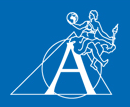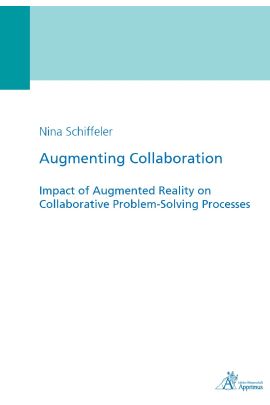Current working environments and the problems to be solved have become so complex that they often require collaborative working modes. This complexity also results in the necessity for methodological and process support. While analogue materials, e,g, whiteboards, have already been used for decades to foster collaboration and problem-solving processes, digital technologies increasingly supplement and often even replace them. For digital technologies to effectively and efficiently support collaborative problem-solving processes, their impact on the collaboration need to be taken into account.
An example of a currently increasingly used digital technology is Augmented Reality (AR). It is characterised by enhancing the real world by virtual objects or information with the help of digital devices, specific mobile applications, and virtual objects. When combined with tasks and (working) processes such as solving a complex problem in a team, AR might serve as a supportive means. The impact of AR on collaborative problem-solving processes, however, has hardly been investigated from the human rather than the technological perspective in terms of how an AR application is designed for fostering collaborative problem-solving processes and how to conceptualise its integration into collaborative teamwork.
This thesis, thus, has investigated the effects that show when using AR for fostering the collaborative solving of problems. To do so, it is based on two methodological parts: Part A deals with the description of the general aspects of collaboration in teams, while Part B is concerned with the investigation of AR in collaborative problem-solving processes. While Part A includes a literature-based requirements analysis and participant observation for identifying basic requirements and design criteria for collaborative AR, Part B builds onto these results and investigates the impact of AR on collaborative problem-solving processes by means of an experimental setting.
As a result, statements and guidelines describe the implications of AR on the teams’ behaviour during a collaborative problem-solving process as well as the progress and conduct of the process. They present recommendations for action with respect to the situations effective for collaborative AR, the design of collaborative AR applications, and conceptualisation of the team and organisational development process during problem-solving processes.
| Autor | Schiffeler, Nina |
|---|---|
| Gewicht | 0.316 kg |
| Erscheinungsdatum | 02.07.2021 |
Eigene Bewertung schreiben
IMA Cybernetics Lab - Lehrstuhl für Informationsmanagement im Maschinenbau
Augmenting Collaboration - Impact of Augmented Reality on Collaborative Problem-Solving Processes
ISBN: 978-3-86359-983-6
Lieferzeit: 2-3 Tage
39,00 €
inkl. 7% MwSt.
Kurzbeschreibung
Diese Arbeit untersucht die Auswirkungen von Augmented Reality (AR) auf kollaborative Problemlöseprozesse und fokussiert dabei die Kollaborateure sowie das Konzept zur effektiven Gestaltung und Integration von AR in kollaborative Setting zur Lösung komplexer Probleme. Als Ergebnis werden Aussagen und Leitlinien vorgestellt, die die Auswirkungen von AR auf das Verhalten der Teams während der Kollaboration sowie auf den Fortschritt und die Durchführung des Problemlöseprozesses beschreiben.
Auf Lager

